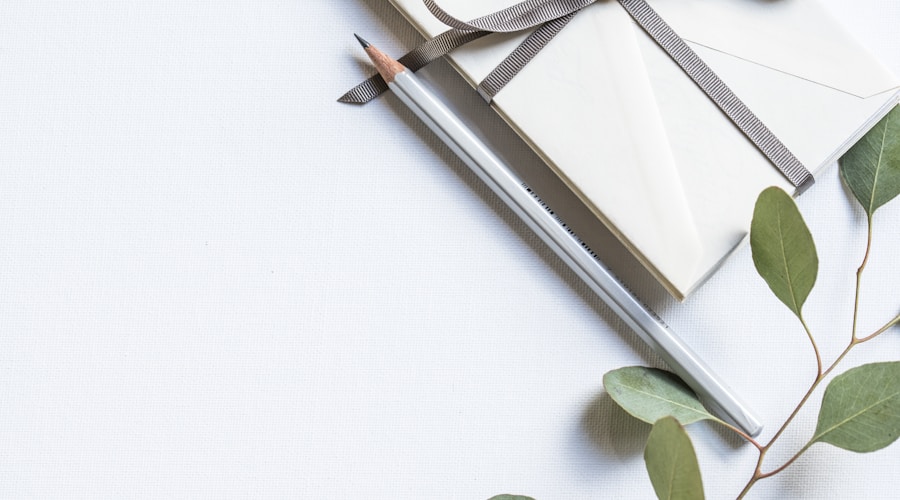Have you ever found yourself twiddling your thumbs or staring off into space, feeling like time is moving at a snail's pace? It's a feeling we're all too familiar with - boredom. But what if I told you that this seemingly mind-numbing state could actually hold the key to unlocking your creativity?
In a fast-paced world where we are constantly bombarded with stimuli, we often view boredom as something to be avoided at all costs. However, research suggests that embracing moments of boredom can lead to some unexpected and beneficial outcomes. This article will delve into the surprising relationship between boredom and creativity, and how allowing yourself to experience boredom might just be the missing piece in your quest for innovation and inspiration.
Buckle up and get ready to shift your perspective on boredom – you're in for a wild ride!
Understanding Boredom: What It Really Is
Boredom is often seen as a negative feeling, something to be avoided at all costs. But what if I told you that boredom is not just about having nothing to do? According to psychologist Dr. Sandi Mann, boredom is "an emotional state that occurs when you are uninterested in your surroundings and feel that life is dull."1
But is it possible that boredom is not just a signal to find something more stimulating, but actually a necessary part of the creative process? In fact, Dr. Mann goes on to say, "Daydreaming, mind-wandering, and just being plain bored can lead to the most amazing 'eureka' moments."1
Instead of being a mere lack of stimulation, boredom may actually be a signal from your brain that it needs a break from the constant stimuli of everyday life. As author Michael Harris puts it, "Boredom is the gateway to mind-wandering, which helps our brains to process and reorganize information, yielding greater creativity in the long run."2
So, the next time you find yourself feeling bored, maybe it's not such a bad thing after all.
The Creative Mind: How Boredom Can Spark New Ideas
When you find yourself stuck in a state of boredom, it might feel like a waste of time. However, the truth is that boredom can actually be a powerful catalyst for creativity. Understanding the connection between boredom and creativity can help you leverage this seemingly unproductive state of mind to your advantage.
Boredom provides the mental space for your mind to wander and explore new ideas. As Manoush Zomorodi, author of "Bored and Brilliant," puts it, "When your mind gets bored, it goes on a little wandering expedition." This mental wandering is essential for creativity, as it allows your brain to make unexpected connections and foster new perspectives. This is why some of the greatest creative breakthroughs often happen during moments of idleness.
Moreover, a study published in the journal Academy of Management Discoveries found that boredom can lead to increased creativity. According to the lead researcher, Dr. Sandi Mann, "Boredom at work has always been seen as something to be eliminated, but perhaps we should be embracing it in order to enhance our creativity."
So, the next time you find yourself feeling bored, take advantage of this mental state by allowing your mind to wander and explore new ideas. You may be surprised by the creative solutions and innovative concepts that arise when you embrace your boredom.

Stories of Success: When Boredom Led to Big Discoveries
Stories of Success: When Boredom Led to Big Discoveries
Boredom has been the catalyst for some of the most groundbreaking discoveries in history. When you find yourself at a creative dead-end, remember that boredom can actually lead to big breakthroughs. Need proof? Just take a look at these real-life stories:
Isaac Newton: When an outbreak of the plague closed down Cambridge University in 1665, Newton was forced to return to his family estate. With no classes to attend or research to conduct, he found himself with an unprecedented amount of free time. It was during this period of idleness that he observed an apple falling from a tree, leading to his groundbreaking theory of gravity.
Ada Lovelace: The world's first computer programmer, Lovelace made her most significant contributions to computing while grappling with extreme boredom. "If I came across something I didn't understand, I would thrash on it until I did understand it," she once said.
Albert Einstein: Einstein is known for revolutionizing our understanding of physics, but did you know that his theory of relativity was formulated during a time of extreme boredom? After his painstaking work as a patent clerk, he spent hours doing seemingly mindless tasks, letting his mind wander and explore new ideas.
These stories aren't isolated incidents but rarities that highlight the power boredom has to ignite creativity and pave the way for significant discoveries. So next time you find yourself feeling bored, embrace it as an opportunity for creative growth.
Brain Breaks: Why Doing Nothing Can Mean Everything
Have you ever noticed how some of your best ideas come to you when you're doing nothing at all? It turns out that there's a scientific reason for this phenomenon. According to neuroscientist Dr. Srini Pillay, "When you're bored, you're searching for neural stimulation, and in the process, you're likely to stumble onto some interesting thoughts."
Taking regular brain breaks, or periods of rest where you allow your mind to wander, can actually be incredibly beneficial for your creativity. Instead of constantly straining your brain to come up with new ideas, giving yourself permission to relax and be bored can lead to breakthrough moments. Dr. Sandi Mann, a senior psychology lecturer at the University of Central Lancashire, explains that "boredom becomes a seeking state. It encourages us to look for something new, to be open to new experiences."
So, the next time you find yourself zoning out or feeling uninspired, don't be afraid to embrace the boredom. It could be the key to unlocking your next big idea.

Boredom vs. Rest: What's the Difference?
When you feel bored, it's easy to mistake it for simply needing some rest. However, there is a distinct difference between the two. Rest is about taking a break to rejuvenate your mind and body, while boredom is a signal that your brain is hungry for stimulation.
According to author and psychologist Patricia Meyer Spacks, "Boredom is a natural feeling that signals you it's time to switch gears and find something new and interesting to do." It's not about being tired or needing to relax; it's about craving excitement and mental engagement.
When you're resting, you might be watching a movie, taking a nap, or enjoying a leisurely walk. Rest allows your brain to relax and recharge, while boredom is a sign that your brain is seeking something more mentally stimulating; it's like a thirst for new experiences and challenges.
In the words of neuroscientist Dr. Sandi Mann, "Boredom is an unpleasant state of wanting, but being unable, to engage in satisfying activity. It's not the same as rest, relaxation, or even leisure - although it might coexist with them."
Understanding the difference between boredom and rest is crucial for leveraging the benefits of both. While rest is essential for overall well-being, boredom can be a powerful catalyst for creativity and innovation.
Remember, when you feel bored, it's a signal that your brain is ready for a new challenge or an exciting experience. Embrace it, and use it as an opportunity to engage in activities that can spark your creativity and lead to new discoveries.
Turning Boredom into Brilliance: Tips and Tricks
You may often find yourself feeling bored, but did you know that embracing that feeling could lead to creative brilliance? When you're bored, your mind is in a unique state that can actually spark creativity. Here are some tips and tricks to help you turn boredom into a springboard for brilliant ideas.
Embrace the boredom: Instead of trying to escape from it, try to embrace the feeling of boredom. As author Michael Lewis said, "The most creative people are willing to tolerate the slight discomfort of a stumped problem that we call boredom."
Engage in mindless activities: Doing something monotonous or mindless, such as taking a walk or doing household chores, can allow your mind to wander and generate new ideas. As journalist Seth Porges suggests, "The next time you're feeling bored, let your mind wander and see where it takes you."
Limit distractions: When you feel bored, it can be easy to reach for your phone or turn on the TV, but these distractions can hinder your ability to let your mind wander and generate creative thoughts. Giving yourself space to be bored could lead to a breakthrough idea.
Doodle or daydream: Engaging in activities like doodling or daydreaming can help stimulate your imagination and lead to creative insights. According to author Tim Harford, "Creative ideas often emerge from boredom. Doodling, daydreaming, and letting your mind wander can all lead to brilliant creative breakthroughs."
Try something new: If you find yourself in a state of boredom, consider trying something new that you've never done before. This could be a new hobby, a new type of cuisine, or a new form of exercise. Psychologist Sandi Mann suggests, "Try doing something you wouldn't usually do when you're feeling bored. It could lead to a whole new world of creativity."
By following these tips and tricks, you can transform moments of boredom into opportunities for creative brilliance. Remember, boredom is not always something to be avoided; it can be a gateway to new and innovative ideas.

Positive Outcomes: The Good Side of Feeling Bored
So, feeling bored doesn't have to be all bad. In fact, it can lead to some positive outcomes that you might not expect. Here are some good things that can come out of feeling bored:
Enhanced Creativity: When you allow yourself to feel bored, you give your mind the opportunity to wander and explore new ideas. As author Michael Chabon puts it, "Boredom is just the reverse side of fascination: both depend on being outside rather than inside a situation, and one leads to the other." So, don't be afraid to let your mind wander when you're feeling bored – it might just lead to a stroke of creative genius.
Increased Productivity: Surprisingly, feeling bored can actually motivate you to get things done. Psychologist Sandi Mann explains, "Boredom can be a catalyst for action. It can make you more creative and it can help you get things done". So, the next time you find yourself bored at work, maybe it's your brain's way of telling you to start that project you've been putting off.
Mental Rest and Recovery: When you're constantly bombarded with stimuli and information, feeling bored can be a welcome break for your mind. Author Tyler Cowen notes, "Boredom is good for everyone, no matter how talented they are. If you’re creative and you can maintain compound growth of your abilities, you’ve faced the fact of boredom, and you’ve at least got the potential to grow more quickly than others who are afraid of being bored". So, think of boredom as a chance for your brain to recharge and come back even stronger.
Feeling bored doesn't have to be a negative experience. When you embrace it, you might just find that it leads to some positive outcomes that can benefit your creativity and overall well-being.
Conclusion
In conclusion, it's important to recognize that boredom, despite its negative connotations, can actually be beneficial for creativity. Embracing moments of ennui can lead to new ideas, deeper insights, and even big discoveries. As psychologist Sandi Mann states, "Boredom at its core is a drive for exploration and engagement". Understanding the value of boredom and allowing yourself to experience it without guilt or anxiety can greatly enhance your creative potential.
By giving your mind the space to wander, you allow it to make unexpected connections and discoveries. As author Michael Chabon explains, "For me, daydreaming is an essential part of the creative process". Allowing yourself to be bored can be the first step to letting your imagination roam freely and come up with groundbreaking ideas.
So, next time you find yourself feeling bored, remember that it’s not necessarily a bad thing. Instead of reaching for your phone or seeking a distraction, try to embrace the feeling and see where it takes you. You might be surprised at the creative breakthroughs that can come from moments of apparent idleness.
Take the time to relax your mind and let your thoughts wander without a specific goal in mind, and you may find that it leads you to new and exciting places. As Albert Einstein famously stated, "The monotony and solitude of a quiet life stimulates the creative mind".
By understanding and accepting boredom as an essential part of the creative process, you can unlock new levels of imagination and innovation within yourself.

2Michael Harris, The End of Absence (2014)
3James Gleick, The Innovators: How a Group of Hackers, Geniuses, and Geeks Created the Digital Revolution (2014)
4Gregory Berns, Iconoclast: A Neuroscientist Reveals How to Think Differently (2008)
5Sandi Mann, The Upside of Downtime: Why Boredom is Good (2017)
6Patricia Meyer Spacks, "Boredom: The Literary History of a State of Mind" (1995)
7Sandi Mann, "The Upside of Downtime: Why Boredom is Good" (2017)
8Michael Lewis, The Undoing Project (2016)
9Seth Porges, "The Power of Boredom in the Digital Age," Forbes (2018)
10Tim Harford, Messy: The Power of Disorder to Transform Our Lives (2016)
11Sandi Mann, The Science of Boredom (2017)
12Michael Chabon, "The Pleasure of Being Bored"
13Sandi Mann, The Upside of Downtime: Why Boredom is Good
14Tyler Cowen, "Boredom is Good for You"
15Sandi Mann, The Upside of Downtime: Why Boredom Is Good (2017)
16Michael Chabon, Telegraph Avenue: A Novel (2012)
17Albert Einstein, The World As I See It (2007)